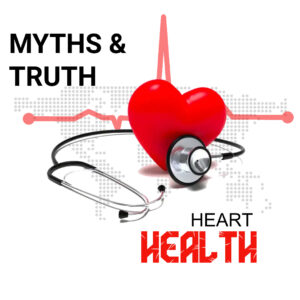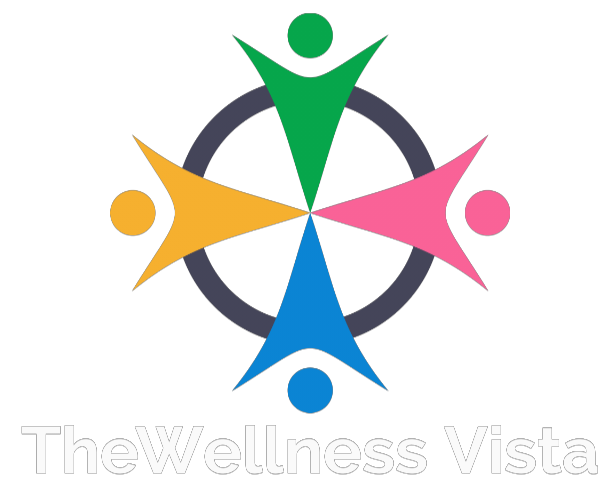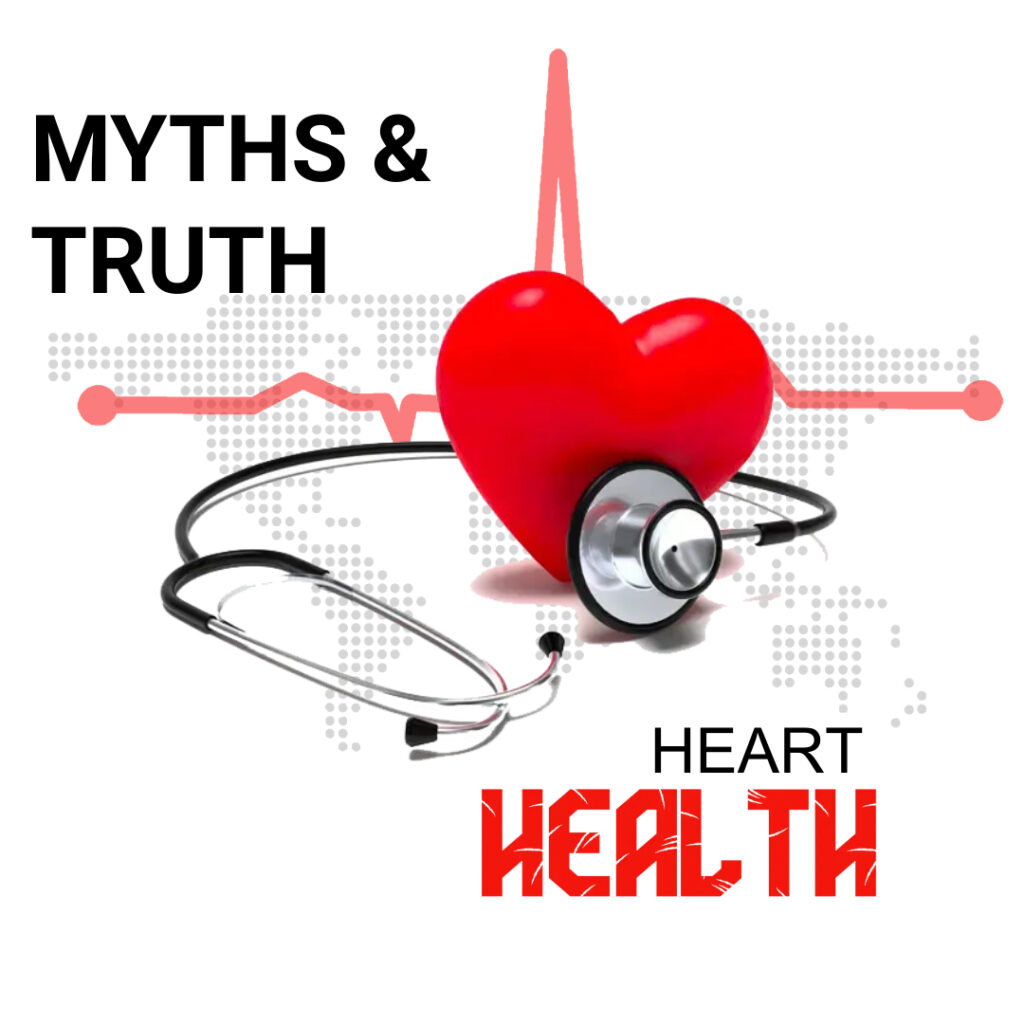HEALTHY HEART DIET
Introduction:
In the pursuit of overall well-being, cultivating a heart-healthy lifestyle stands as a beacon for vitality and longevity. However, the landscape of dietary advice is often fraught with myths that can obscure the path to a truly healthy heart. This article aims to demystify five prevalent misconceptions surrounding heart-healthy diets, paving the way for informed choices that promote a robust and enduring cardiovascular system.

Myth 1: All Fats Are Harmful to Your Healthy Heart
There exists a persistent myth that all fats are adversaries to a heart. However, the truth is nuanced and vital for understanding the intricacies of cardiovascular health. Healthy fats, found abundantly in avocados, nuts, seeds, and olive oil, play a pivotal role in nurturing a heart. Incorporating these fats into your diet can contribute to lower bad cholesterol levels, thus promoting a genuinely healthy heart.
It is essential to recognize that the journey to a heart involves discerning between detrimental saturated and trans fats and the beneficial unsaturated fats. By making mindful choices and embracing the right fats, you embark on a path towards a resilient and healthy heart.
Myth 2: Low-Fat Diets are Always Heart-Healthy
The myth that all low-fat diets are inherently heart-healthy oversimplifies the complex relationship between fats and cardiovascular well-being. The truth lies in the understanding that not all fats are created equal, and the focus should be on fostering a diet that nurtures a healthy heart rather than simply opting for low-fat alternatives.
A balanced approach that includes nutrient-dense foods and healthy fats in moderation is paramount for sustaining a healthy heart. Blindly adhering to low-fat options may inadvertently lead to the consumption of processed foods high in sugars and salt, detracting from the goal of a genuinely healthy heart.
Myth 3: Eggs Are Bad for Your Heart
Eggs have endured unwarranted scrutiny when it comes to heart health, primarily due to concerns about cholesterol. However, the truth is that eggs, when consumed in moderation, can be a valuable ally in the pursuit of a healthy heart. Rich in high-quality protein, essential nutrients, and antioxidants, eggs contribute positively to overall cardiovascular health.
Acknowledging the nutritional value of eggs and incorporating them into a balanced diet is a step towards fostering a healthy heart. The key lies in understanding that a diverse and nutrient-rich diet, inclusive of eggs, can coalesce into a strategy for maintaining a resilient and healthy heart.
Myth 4: Salt Doesn’t Affect Heart Health
Dispelling the myth that salt has no bearing on heart health is imperative for cultivating a truly heart-healthy lifestyle. Excessive salt intake has been unequivocally linked to elevated blood pressure, a primary risk factor for heart disease. A commitment to a healthy heart involves being mindful of sodium consumption and actively working towards reducing its intake.
Opting for fresh, whole foods and minimizing the consumption of processed and packaged items is a strategy that aligns with the goal of a healthy heart. By being vigilant about salt intake, you contribute to the overall well-being and resilience of your heart.
Myth 5: A Heart-Healthy Diet Is Only About Food Choices
A prevailing myth is that a heart-healthy diet is solely contingent on food choices. However, the truth encompasses a broader spectrum that extends beyond the plate. While dietary decisions are undeniably pivotal, a holistic approach to a healthy heart encompasses lifestyle factors such as regular physical activity, stress management, and the avoidance of harmful habits like smoking.
Engaging in regular exercise not only aids in maintaining a healthy weight but also contributes to reduced blood pressure and improved cardiovascular function, essential components of a healthy heart. Furthermore, stress management and the cessation of smoking are non-negotiable facets of fostering a resilient and truly healthy heart.
Conclusion:
Embarking on the journey to a heart requires dispelling myths and embracing truths that illuminate the path towards cardiovascular well-being. By understanding that not all fats are detrimental, that low-fat diets must be approached with discernment, and that eggs can be part of a heart-healthy diet, you lay the foundation for a resilient heart.Also, a healthy weightloss helps to maintain heart health for a longer term.
Additionally, recognizing the impact of salt on heart health and acknowledging that a heart-healthy lifestyle extends beyond dietary choices empowers you to make informed decisions. As you navigate the complexities of heart-healthy living, remember that the journey involves mindful choices, holistic practices, and a commitment to nurturing a robust and enduring cardiovascular system. Through dispelling myths and embracing truths, you can stride confidently towards a life filled with the vitality of a truly healthy heart.







